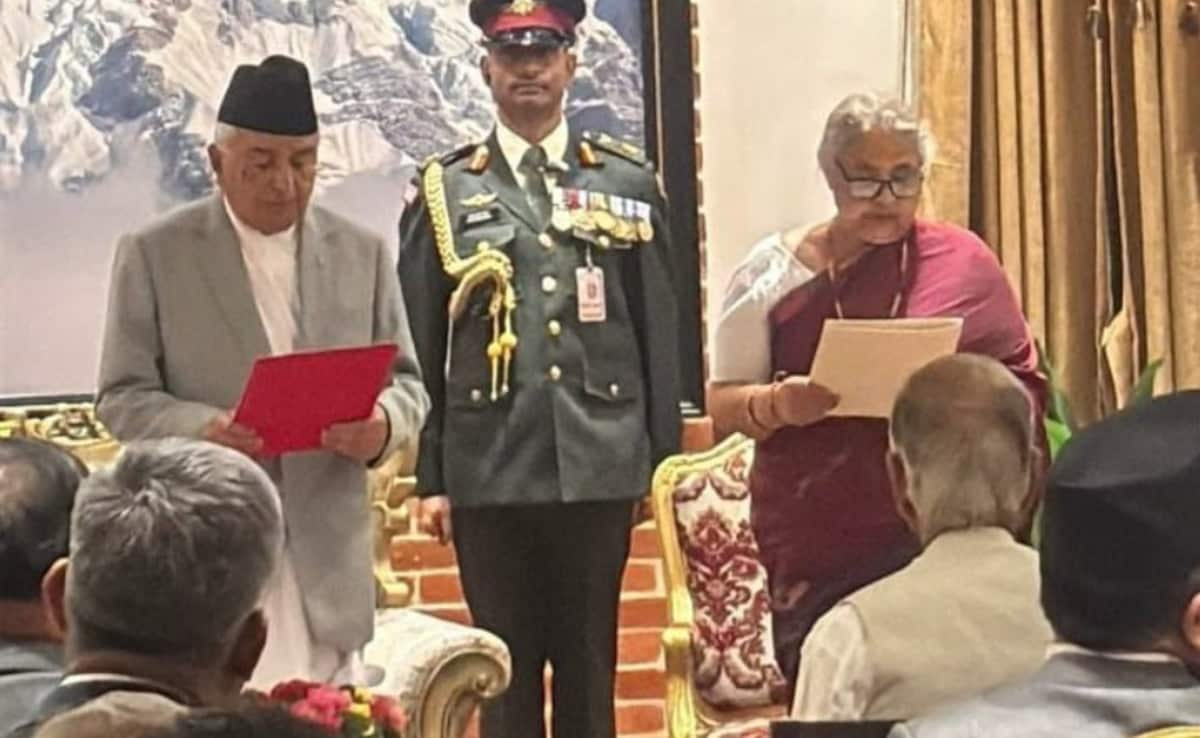âThe mission field director and the American embassy are working to see what can be done,â the voice on the recording stated. It later added, âPray that the gang members will come to repentance and faith in Jesus Christ.â
Organizations that monitor kidnappings in Haiti said the missionaries were abducted by a much-feared gang known as 400 Mawozo, which is known for targeting religious groups and controls parts of Ganthier, a town east of the capital where the group was seized on Saturday. In recent months, its members have increasingly engage in mass kidnappings involving bus and carloads of victims.
The gang in April kidnapped five priests and two nuns, including French nationals, in an incident that led Catholic universities and schools to close in protest. Then-Prime Minister Joseph Jouthe resigned shortly after, and following a surge of other gang crimes â including a ruthless attack on an orphanage in which children were sexually assaulted.
Gédéon Jean, director of the Center for Analysis and Research in Human Rights in Port-au-Prince, said he had received information from authorities that Saturdayâs captives included 16 Americans and one Canadian citizen. A person familiar with the abduction, who spoke on the condition of anonymity to describe an ongoing crisis, said there may have been two Haitian nationals also abducted.
âThe modus operandi is they take entire car and buses,â Jean said. âThen they ask for a price to release everybody.â
Christian Aid Ministries did not respond to a request for comment. According to the groupâs website, American staff members had returned to its Haiti base in 2020 after being gone for nine months because of political unrest.
The person familiar with the matter said that one of the abducted Americans had posted a call for help in a WhatsApp group as the kidnapping was occurring.
âPlease pray for us!! We are being held hostage, they kidnapped our driver. Pray pray pray. We donât know where they are taking us,â the message read.
Several Haitian government officials acknowledged reports were âcirculatingâ but could not immediately confirm the kidnappings. Pierre Espérance, director of Haitiâs National Human Rights Defense Network, said he had been informed by officials in Haiti on Saturday that an unknown number of American missionaries had been kidnapped.
In a statement, the U.S. State Department said, âThe welfare and safety of U.S. citizens abroad is one of the highest priorities of the Department of State. We are aware of these reports and have nothing additional to offer at this time.â
Haiti has the highest per-capita kidnapping rate on Earth. Recorded kidnappings so far this year have spiked sixfold over the same period last year, as criminals have nabbed doctors on their way to work, preachers delivering sermons, entire busloads of people in transit â even police on patrol. The surge that this year has been so big that Port-au-Prince is now posting more kidnappings in absolute terms than vastly larger Bogotá, Mexico City and São Paulo combined, according to the consulting firm Control Risks.
Saddled with endemic poverty and violence, Haiti is no stranger to kidnapping waves. But as armed gangs allegedly linked to politicians and private business interests have strengthened, now controlling swaths of the nation, analysts say the current wave is by far the worst in Haitiâs history.
During the first six months of the year, there were at least 395 kidnappings, more than four times the 88 during the same period last year, according to the Center for Analysis and Research in Human Rights in Port-au-Prince. After the assassination in July of President Jovenel Moïse â who was accused of being in league with the very gang members who use kidnappings as a source of revenue and control â abductions dropped briefly, before surging to 73 in August and to 117 in September, according to the center.
The nation continues to reel from a power vacuum following the assassination of Moïse and the August earthquake that killed more than 2,200 people and left tens of thousands of Haitians homeless across the southern part of the country.
Widlore Merancourt in Port-au-Prince contributed to this report.
More reading:
.png)











 English (United States) ·
English (United States) ·  Turkish (Turkey) ·
Turkish (Turkey) ·